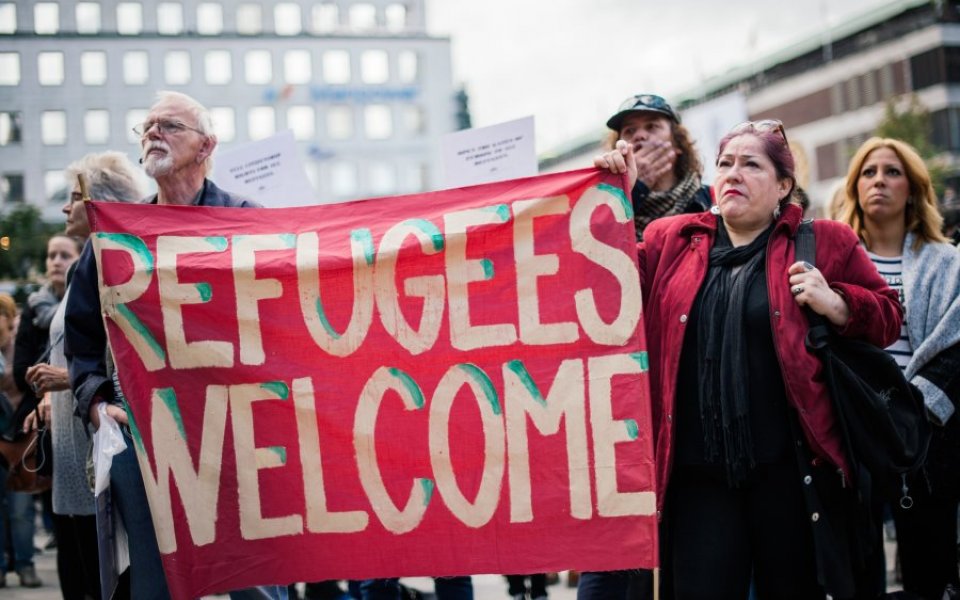EU migrant crisis: Sweden tightens generous asylum rules to “EU minimum” to force EU action on refugee crisis

Sweden will tighten its asylum rules dramatically in a bid to force other EU countries to do more to tackle the continuing refugee crisis.
The Scandinavian country has previously accepted more refugees per capita than any other EU country, but will now be curbing the number of asylum seekers reaching the country by doing no more than the “EU minimum”.
Some 190,000 asylum seekers are expected to reach Sweden before the year is out, and Prime Minister Stefan Lofven said today that the country is buckling under the strain. At a press conference this afternoon he announced that Sweden “simply doesn’t have the capability to do more”:
It pains me that Sweden can no longer continue accepting asylum seekers in the large numbers that we do today.
This dramatic u-turn from the country’s formerly generous policy has been denounced by non-profits, with the Red Cross calling it a “black day” for Sweden on Twitter. Vice prime minister Asa Romson was near tears when announcing the scheme alongside Lofven.
The new rules mean only temporary residence permits will be granted, and only to the refugees Sweden is obligated by EU regulations to help.
Formerly, all those granted asylum received permanent residency. The new policy will remain in place for at least three years, and follows on the recent introduction of large-scale border controls, the first the country has had for several decades.
Some 80,000 asylum seekers have reached Sweden two months, and the country’s Migration Board recently announced it no longer has the capacity to find accommodation for all.
Sweden’s refugee reception has hitherto been second to Germany in absolute numbers, and by far the EU country receiving most refugees per capita.
Eurozone leaders agreed in September to set binding quotas for 120,000 refugees to be relocated across Europe.
Lofven was highly critical of other EU countries for not having done more:
I’m disappointed that the EU’s member states haven’t managed to tackle this situation together.